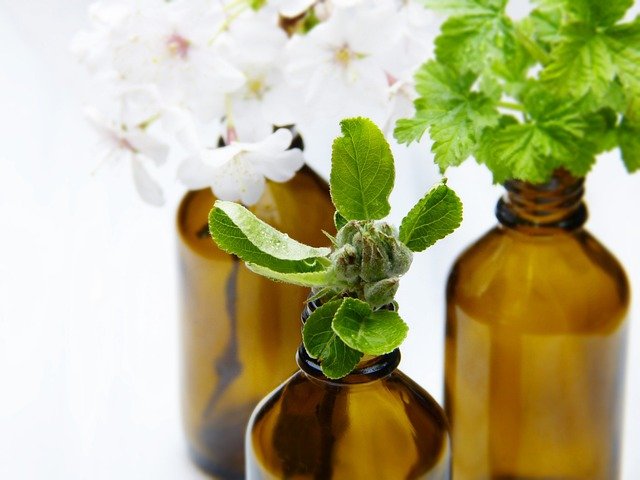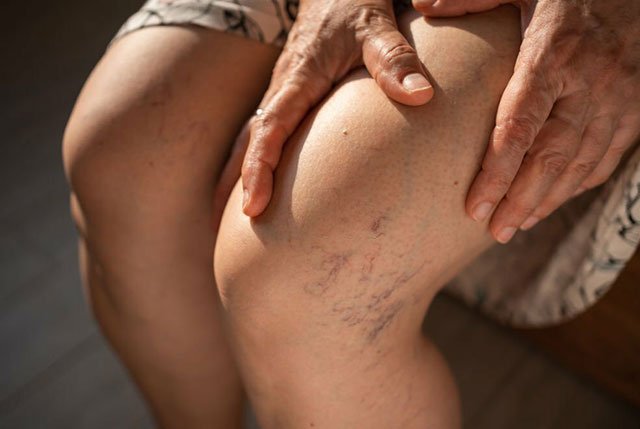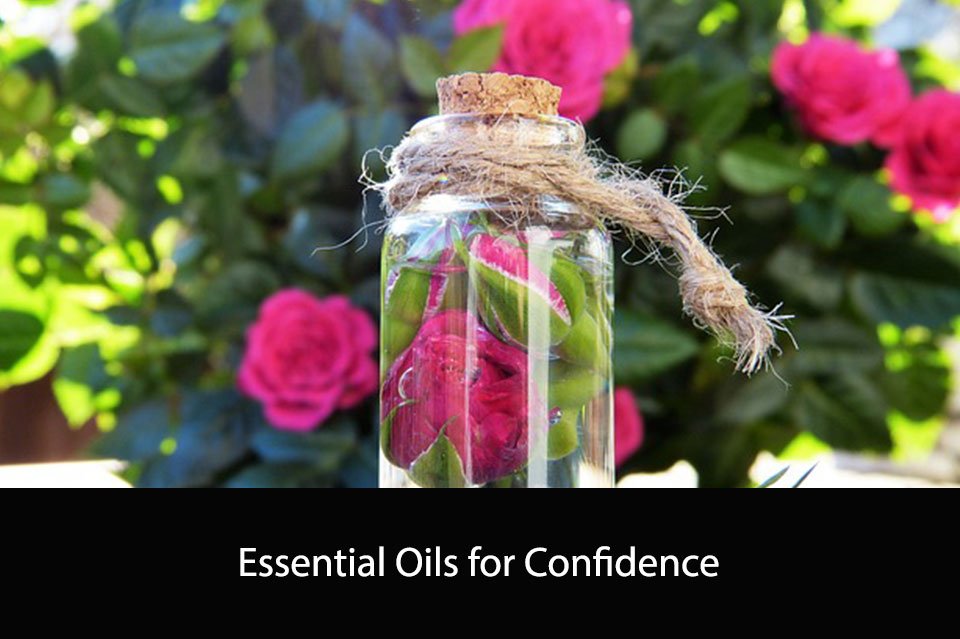Essential oils have been used for centuries to treat a wide range of health conditions, including varicose veins and circulation problems. These oils are extracted from plants and contain powerful natural compounds that can help improve blood flow, reduce inflammation, and ease pain and discomfort.
When it comes to varicose veins, essential oils such as cypress, helichrysum, and peppermint have been found to be particularly effective. These oils can help strengthen the walls of the veins, improve circulation, and reduce swelling and inflammation. They can also help relieve pain and discomfort associated with varicose veins.
In addition to varicose veins, essential oils can also be used to improve overall circulation. Oils such as ginger, rosemary, and black pepper can help stimulate blood flow, increase oxygenation, and improve nutrient delivery to the cells. This can help reduce the risk of cardiovascular disease, improve energy levels, and promote overall health and wellbeing.

Understanding Varicose Veins
Varicose veins are enlarged, twisted veins that often appear blue or dark purple. They usually occur in the legs and can cause discomfort, pain, and swelling. Varicose veins occur when the valves in the veins that help blood flow to the heart become weak or damaged, causing blood to pool in the veins.
Varicose veins are a common condition that affects many people, especially women. They can be caused by a variety of factors, including age, pregnancy, obesity, genetics, and standing or sitting for long periods of time.
While varicose veins are generally not a serious health concern, they can cause discomfort and affect quality of life. If left untreated, they can lead to more serious complications such as ulcers, blood clots, and bleeding.
There are several ways to manage varicose veins, including lifestyle changes, compression stockings, and medical procedures. Understanding the causes and symptoms of varicose veins is the first step in managing this condition.
The Role of Circulation in Varicose Veins
Varicose veins are a common condition that affects many individuals worldwide. They occur when the veins in the legs become enlarged and twisted, leading to discomfort, pain, and swelling. While many factors contribute to the development of varicose veins, poor circulation is often a significant underlying cause.
In healthy veins, blood flows smoothly from the legs back up to the heart. However, when circulation is compromised, blood can pool in the veins, leading to increased pressure and the development of varicose veins. Factors that can contribute to poor circulation include prolonged sitting or standing, obesity, pregnancy, and aging.
Improving circulation is an essential component of preventing and managing varicose veins. One effective way to promote healthy circulation is through regular exercise. Exercise helps to strengthen the muscles in the legs, which can improve blood flow and reduce the risk of varicose veins. Additionally, elevating the legs and wearing compression stockings can also help to improve circulation.
Incorporating essential oils into your daily routine can also be beneficial for promoting healthy circulation. Some essential oils, such as cypress and peppermint, have been shown to improve blood flow and reduce inflammation. When using essential oils, it is essential to dilute them properly and use caution, as some oils can be irritating to the skin.
Overall, poor circulation is a significant contributor to the development of varicose veins. By incorporating exercise, elevation, compression stockings, and essential oils into your daily routine, you can promote healthy circulation and reduce your risk of developing varicose veins.
Essential Oils: An Overview
Essential oils are highly concentrated plant extracts that are used for their therapeutic properties. They are extracted from various parts of plants, including leaves, flowers, roots, and bark. Essential oils have been used for centuries in traditional medicine to treat a variety of ailments, including varicose veins and poor circulation.
Essential oils work by stimulating the body’s natural healing processes. When applied topically, they can penetrate the skin and enter the bloodstream, where they can help to improve circulation and reduce inflammation. Some essential oils also have analgesic properties, which can help to relieve pain and discomfort associated with varicose veins.
There are many different essential oils that can be used to improve circulation and reduce the appearance of varicose veins. Some of the most popular essential oils for this purpose include:
- Cypress: Cypress essential oil is known for its ability to improve circulation and reduce inflammation. It is often used to treat varicose veins, as well as other circulatory problems.
- Lemon: Lemon essential oil is a natural astringent that can help to tighten and tone the veins. It is also a powerful antioxidant, which can help to protect the skin from damage caused by free radicals.
- Rosemary: Rosemary essential oil is known for its ability to improve circulation and reduce inflammation. It is often used to treat varicose veins, as well as other circulatory problems.
- Peppermint: Peppermint essential oil has a cooling effect on the skin, which can help to reduce inflammation and relieve pain associated with varicose veins. It is also a natural vasoconstrictor, which can help to tighten and tone the veins.
Overall, essential oils can be a safe and effective way to improve circulation and reduce the appearance of varicose veins. However, it is important to use them properly and to consult with a healthcare professional before using them, especially if you have any underlying medical conditions or are taking any medications.
How Essential Oils Improve Circulation
Essential oils have been used for centuries for their therapeutic properties. They are known to improve circulation and reduce inflammation, making them a popular choice for treating varicose veins.
When applied topically, essential oils can help increase blood flow, reduce swelling, and improve overall circulation. Some of the most effective essential oils for improving circulation include:
- Rosemary oil: This oil has been shown to improve circulation by dilating blood vessels and reducing inflammation. It also has a warming effect that can help improve blood flow to the affected area.
- Ginger oil: Ginger oil is known for its anti-inflammatory properties and can help reduce swelling and improve circulation. It also has a warming effect that can help improve blood flow.
- Cypress oil: Cypress oil is a natural vasoconstrictor, meaning it can help constrict blood vessels and improve circulation. It also has anti-inflammatory properties that can help reduce swelling.
- Peppermint oil: Peppermint oil has a cooling effect that can help improve blood flow and reduce inflammation. It is also known to have analgesic properties that can help relieve pain.
To use essential oils for improving circulation, simply dilute a few drops in a carrier oil such as coconut or jojoba oil and apply to the affected area. You can also add a few drops to a warm bath and soak for 20-30 minutes to help improve circulation throughout the body.
It is important to note that essential oils should not be used as a substitute for medical treatment. If you are experiencing severe varicose veins or circulation issues, it is important to consult with a healthcare professional before using essential oils.

Specific Essential Oils for Varicose Veins
Varicose veins are a common condition that can cause discomfort and pain in the legs. Fortunately, essential oils can help alleviate the symptoms associated with varicose veins and improve circulation in the affected areas. In this section, we will discuss some of the best essential oils for varicose veins.
Cypress Oil
Cypress oil is one of the most effective essential oils for varicose veins. It has anti-inflammatory and vasoconstrictive properties that help reduce swelling and improve circulation. Cypress oil also helps strengthen the walls of the veins, which can prevent further damage. To use cypress oil, mix a few drops with a carrier oil like coconut oil and massage onto the affected areas.
Lavender Oil
Lavender oil is known for its calming and relaxing properties, but it can also be beneficial for varicose veins. It has anti-inflammatory properties that can reduce swelling and pain in the affected areas. Lavender oil also helps improve circulation and can prevent blood clots from forming. To use lavender oil, mix a few drops with a carrier oil and massage onto the affected areas.
Lemon Oil
Lemon oil is another essential oil that can be beneficial for varicose veins. It has astringent properties that can help tighten the walls of the veins and improve circulation. Lemon oil also has anti-inflammatory properties that can reduce swelling and pain. To use lemon oil, mix a few drops with a carrier oil and massage onto the affected areas.
Geranium Oil
Geranium oil is a popular essential oil for varicose veins. It has anti-inflammatory and vasoconstrictive properties that can reduce swelling and improve circulation. Geranium oil also helps strengthen the walls of the veins, which can prevent further damage. To use geranium oil, mix a few drops with a carrier oil and massage onto the affected areas.
Overall, essential oils can be a natural and effective way to alleviate the symptoms associated with varicose veins. However, it is important to note that essential oils should not be used as a substitute for medical treatment. If you have severe varicose veins, it is important to consult with a healthcare professional.
How to Use Essential Oils for Varicose Veins
Varicose veins are a common condition that affects many people. They occur when the veins become enlarged and twisted, causing discomfort and pain. Essential oils can be a natural and effective way to help alleviate the symptoms of varicose veins and improve circulation. In this section, we will discuss two ways to use essential oils for varicose veins: topical application and aromatherapy.
Topical Application
Topical application of essential oils is a popular method for treating varicose veins. To use essential oils topically, you can mix them with a carrier oil and apply them directly to the affected area. Some of the best essential oils for varicose veins include:
- Cypress oil: Cypress oil has astringent properties that can help reduce swelling and improve circulation.
- Helichrysum oil: Helichrysum oil is known for its anti-inflammatory and analgesic properties, making it a great choice for reducing pain and inflammation associated with varicose veins.
- Lavender oil: Lavender oil has a calming effect and can help reduce stress and anxiety, which can contribute to the development of varicose veins.
To use essential oils topically, mix a few drops of the oil with a carrier oil such as coconut oil or jojoba oil. Apply the mixture to the affected area and massage gently for a few minutes. Repeat this process twice a day for best results.
Aromatherapy
Aromatherapy is another effective way to use essential oils for varicose veins. To use essential oils aromatically, you can add them to a diffuser or inhale them directly from the bottle. Some of the best essential oils for aromatherapy include:
- Peppermint oil: Peppermint oil has a cooling effect that can help reduce pain and inflammation associated with varicose veins.
- Lemon oil: Lemon oil is known for its detoxifying properties and can help improve circulation and reduce swelling.
- Rosemary oil: Rosemary oil has stimulating properties that can help improve circulation and reduce pain and discomfort associated with varicose veins.
To use essential oils for aromatherapy, add a few drops of the oil to a diffuser or inhale the oil directly from the bottle. Repeat this process once or twice a day for best results.
Overall, essential oils can be a natural and effective way to help alleviate the symptoms of varicose veins and improve circulation. By using essential oils topically or aromatically, you can help reduce pain, inflammation, and swelling associated with varicose veins.
Precautions When Using Essential Oils
When using essential oils for varicose veins and circulation, it is important to take certain precautions to ensure safe and effective use. Here are some guidelines to follow:
- Dilute essential oils: Essential oils are highly concentrated and can cause skin irritation or allergic reactions if used undiluted. We recommend diluting essential oils with a carrier oil such as coconut oil, jojoba oil, or sweet almond oil before applying to the skin. The recommended dilution ratio is typically 2-3 drops of essential oil per teaspoon of carrier oil.
- Patch test: Before applying essential oils to a larger area of the skin, we recommend doing a patch test to check for any adverse reactions. Apply a small amount of diluted essential oil to the inner forearm and cover with a bandage for 24 hours. If there is any redness, itching, or swelling, discontinue use.
- Avoid sensitive areas: Essential oils should not be applied to sensitive areas of the skin such as the eyes, ears, or genital area. If essential oils come into contact with these areas, rinse with cool water and seek medical attention if necessary.
- Use caution during pregnancy: Some essential oils are not recommended for use during pregnancy or breastfeeding. We recommend consulting with a healthcare provider before using essential oils during pregnancy.
- Store essential oils properly: Essential oils should be stored in a cool, dark place away from direct sunlight and heat. Keep essential oils out of reach of children and pets.
By following these precautions, you can safely and effectively use essential oils for varicose veins and circulation.
Conclusion
In conclusion, essential oils can be a helpful addition to a holistic approach to managing varicose veins and circulation issues. While they cannot cure these conditions, they may provide some relief and support to the affected areas.
Based on our research, we recommend using essential oils in combination with other lifestyle changes such as exercise, a healthy diet, and elevating the legs regularly. It is also important to consult with a healthcare professional before using essential oils, especially if you are pregnant, nursing, or have any underlying health conditions.
Some essential oils that may be beneficial for varicose veins and circulation include cypress, helichrysum, lemon, peppermint, and rosemary. These oils can be used topically or inhaled through aromatherapy.
When using essential oils, it is important to dilute them properly and follow safe usage guidelines. Always perform a patch test before using any new oil and discontinue use if you experience any adverse reactions.
Overall, essential oils can be a natural and complementary option for managing varicose veins and circulation issues. With proper usage and the guidance of a healthcare professional, they can be a safe and effective addition to your self-care routine.

Frequently Asked Questions
What are some natural ways to improve blood circulation in the legs?
There are several natural ways to improve blood circulation in the legs, including regular exercise, maintaining a healthy weight, avoiding prolonged sitting or standing, and wearing compression stockings. Additionally, consuming foods that are rich in antioxidants, such as berries and leafy greens, can help improve circulation.
What are some essential oils that can be used to alleviate varicose veins?
Some essential oils that may help alleviate the symptoms of varicose veins include cypress, peppermint, and lavender. These oils can be applied topically or used in a warm compress.
What is the recommended method for using essential oils for varicose veins?
The recommended method for using essential oils for varicose veins is to dilute them in a carrier oil, such as coconut or jojoba oil, before applying them to the affected area. It is important to perform a patch test before using any essential oil to ensure that you are not allergic to it.
Are there any potential side effects of using essential oils for varicose veins?
While essential oils are generally safe to use, some people may experience skin irritation or an allergic reaction. It is important to dilute the oils properly and perform a patch test before use. Additionally, pregnant or breastfeeding women should consult with their healthcare provider before using essential oils.
What are some other natural remedies for varicose veins?
Other natural remedies for varicose veins include eating a healthy diet, maintaining a healthy weight, exercising regularly, avoiding prolonged sitting or standing, and elevating the legs. Herbal supplements, such as horse chestnut and butcher’s broom, may also help alleviate symptoms.
Can a massage oil be effective in reducing the appearance of varicose veins?
While massage oil may help improve circulation and reduce the appearance of varicose veins, it is not a substitute for medical treatment. If you are experiencing pain or discomfort, it is important to consult with a healthcare provider.





